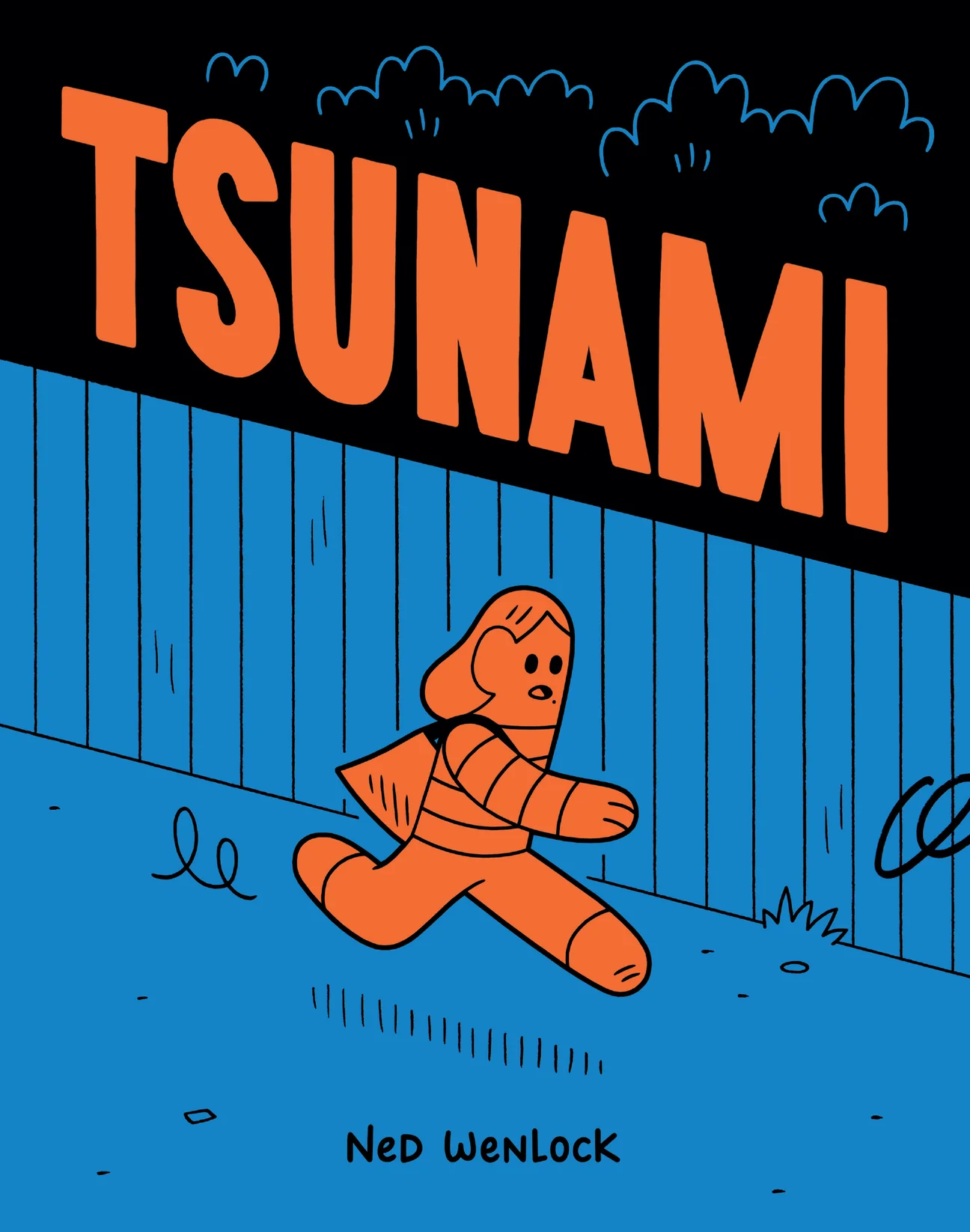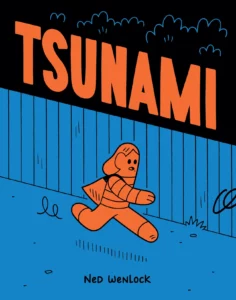Tsunami

Tsunami by Ned Wenlock. Earth’s End Publishing (2023). RRP: $27.99. PB, 278pp. ISBN: 9780473655679, Reviewed by Matt Scowcroft.

I’m a bit of an art masochist. I want to be hurt by the books I read, and I often find stories in which everything is alright in the end unsatisfying. I don’t think that is unusual — us horror movie enthusiasts, scraping the barrel of human suffering for tasty morsels, are pretty common. Maybe it’s because often everything isn’t alright in the end. Even if we come through an ordeal, there are scars. There’s damage. I want art to reflect life back to me — maybe even show me how it could have been worse. As uncomfortable as it is to admit, there is catharsis in observing a tragedy from the outside. Nevertheless, Ned Wenlock’s Tsunami inflicts a particularly brutal emotional toll.
Wenlock plays a sneaky trick on the reader with his drawing style. Each character is drawn in no more than a score or so of lines, and the figures do not have noses or defined fingers. It is closer to Jeff Smith’s Bone than anything approaching realistic. The contrast between the simplified faces, and the subject matter (spoiler: especially the tragic end), creates a particularly ghoulish effect, not unlike the killer clown. The juxtaposition of cartoonish innocence and unforgiving reality is horribly effective.
As Scott McCloud noted in his comic-about-comics, Understanding Comics, we are drawn to simplified figures because the less detail there is, the more of ourselves we can project onto the characters — ‘There is no life here except that which you give to it.’
This story has been told a million times before too — it is a coming-of-age story in which the hero is an awkward misfit and his trials lead him to a climactic conclusion, in which something is revealed. Coupled with the streamlined panels, it is easy to be drawn in. We want the schoolboy hero of Tsunami, Peter, to be all right.
In this tragedy, Peter’s hamartia is a kind of stubborn and single-minded need for truth and justice, at the expense of everything else, including friendships and his own safety. He is hurtling towards his doom and there is nothing anyone can do about it except Peter himself. The central tension is maintained — can Peter successfully navigate the turbulent world of teenage relationships while holding onto his dearly-held identity, threatened at every turn?
Tsunami is a domestic tragedy in comics form. It’s not unique in that (see: Chris Ware’s Jimmy Corrigan: the Smartest Kid on Earth, including the simplified, stylized characters), but Tsunami is also quintessentially Kiwi, right down to the gentle rhythms of everyday conversation, and the way even heightened emotions are expressed in an understated way.
There is a splash page near the beginning that is recognisable to any Wellingtonian. It is from the vantage point of someone standing on a street in the hills. The road winds down multiple switchbacks through a steep-sided valley. On the slopes of the valley, weatherboard houses cling to the sides, and at the bottom, the heavily-wooded flat gives way to a rough sea. On the top of the hill, a church watches over everything. It is home.
It’s that Kiwi-ness that really makes this a memorable book for me. Having flawed, relatable heroes of our own is vital to the uniqueness of our inner life, and Peter’s heart-breaking downfall will stay with me for a long time.
Matt Scowcroft lives in Wellington with his two young daughters and, like everyone else there, he works in the public sector. He likes to read, listen to loud angry music, and worry about stuff. He also loves writing and talking about writing.